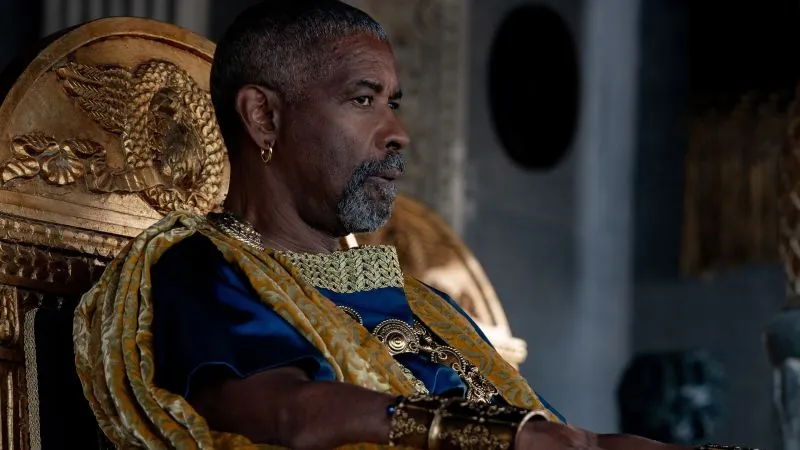
Trump’s 2024 Election Victory: Implications for Israel and Gaza
2024-11-11
Author: Wai
Introduction
In the aftermath of the 2024 U.S. election, Donald Trump's return to the presidency has immediate repercussions for Israel and Gaza, raising concerns among those disillusioned with the Biden administration’s handling of the ongoing conflict.
Appointment of Yechiel Leiter
One of the most notable developments came shortly after the election results, as Israeli Prime Minister Benjamin Netanyahu appointed Yechiel Leiter as Israel’s ambassador to the United States. Leiter is a controversial figure, known for his advocacy of formally annexing the West Bank—an area that remains a focal point of the Israeli-Palestinian conflict. His close ties to the settler movement suggest a significant shift in Israeli policy may be on the horizon, signaling an intention to escalate ongoing tensions rather than pursue normalization with Palestine.
Trump and Netanyahu's Strategy
In recent conversations, Trump and Netanyahu have reportedly aligned their strategies regarding the Israeli-Palestinian conflict, particularly concerning military operations in Gaza. Trump has advocated for a decisive Israeli victory in the ongoing skirmishes, reminiscent of past military campaigns. His sentiments echo a hardline approach, dismissing the prospect of a peaceful resolution while urging Netanyahu to act swiftly and aggressively.
Voter Sentiment Among American Muslims
This recent U.S. election highlighted a demographic shift in voter sentiment within the American Muslim community. Exit polls revealed that only 20% of Muslim Americans voted for Kamala Harris, with slightly more choosing Trump. This contrasts sharply with the 2020 electoral results, where Biden secured 69% of Muslim votes. The disillusionment among these voters is potentially a repercussion of the Democrats’ approach to the escalating conflict in Gaza, leading to significant implications for future election strategies.
Foreign Policy and Military Ties
As the new administration prepares to take shape, Trump's foreign policy intentions appear geared towards reestablishing strong military ties with Israel, particularly pertaining to threats from Iran. In turn, Netanyahu is likely to reconsider Israeli strategies in the region, potentially fostering an environment where confrontations against Iran may escalate.
Potential Geopolitical Dynamics
Interestingly, while some anticipate that Trump's presidency might stabilize the region through military strength, recent geopolitical dynamics suggest that moments of tension could lead to unforeseen diplomatic progress. For instance, Qatar’s leaders are reportedly considering expelling Hamas representatives from Doha. If realized, this could alter the dynamics of peace negotiations, although the effectiveness of such actions remains uncertain.
Palestinian Authority's Outreach
Moreover, Palestinian Authority President Mahmoud Abbas has reached out to Trump, expressing hope for collaborative peace efforts. However, his diminishing influence within Palestinian factions and the lack of a unified Palestinian governance structure complicates these aspirations.
Challenges for Normalization Agreements
The geopolitical landscape presents challenges for Trump's ambition to facilitate normalization agreements, particularly with Saudi Arabia—a move they deem crucial but contingent upon resolving tensions in Gaza. The reluctance from Netanyahu to engage in substantive discussions about Palestinian sovereignty offers a significant roadblock.
Conclusion
While Trump's return to power may deter aggressive Iranian actions in the immediate term, it may also provoke a rush to military solutions rather than negotiations. His administration is expected to re-embrace a "maximum pressure" approach that had previously escalated tensions rather than foster dialogue. As these developments unfold, the stakes have never been higher for both Israel and Palestine, and the world watches closely for the next chapter in this complex and contentious saga. Will Trump's presidency lead to enduring peace, or will it further entrench divisions and hostilities? The answer remains uncertain.




 Brasil (PT)
Brasil (PT)
 Canada (EN)
Canada (EN)
 Chile (ES)
Chile (ES)
 España (ES)
España (ES)
 France (FR)
France (FR)
 Hong Kong (EN)
Hong Kong (EN)
 Italia (IT)
Italia (IT)
 日本 (JA)
日本 (JA)
 Magyarország (HU)
Magyarország (HU)
 Norge (NO)
Norge (NO)
 Polska (PL)
Polska (PL)
 Schweiz (DE)
Schweiz (DE)
 Singapore (EN)
Singapore (EN)
 Sverige (SV)
Sverige (SV)
 Suomi (FI)
Suomi (FI)
 Türkiye (TR)
Türkiye (TR)